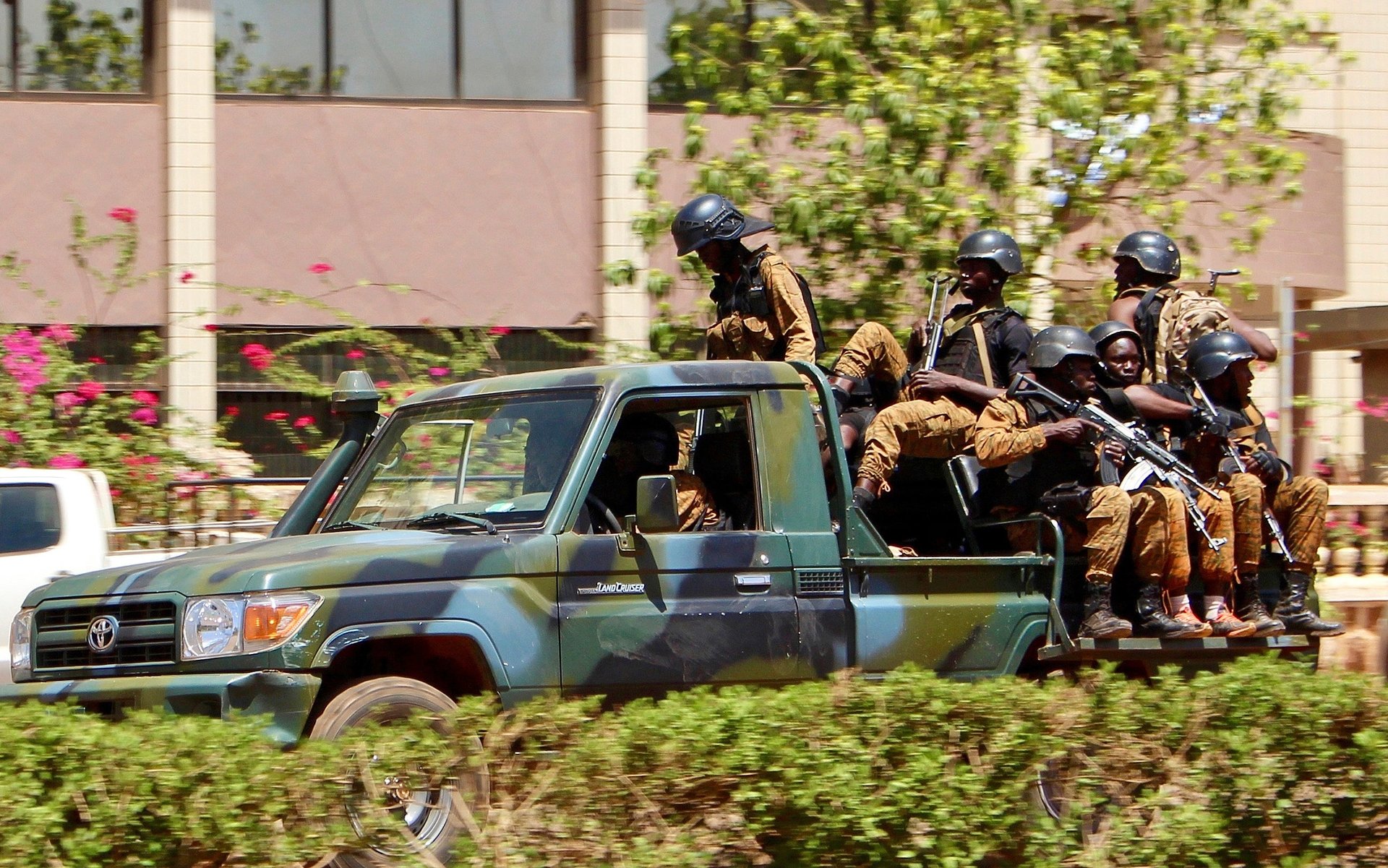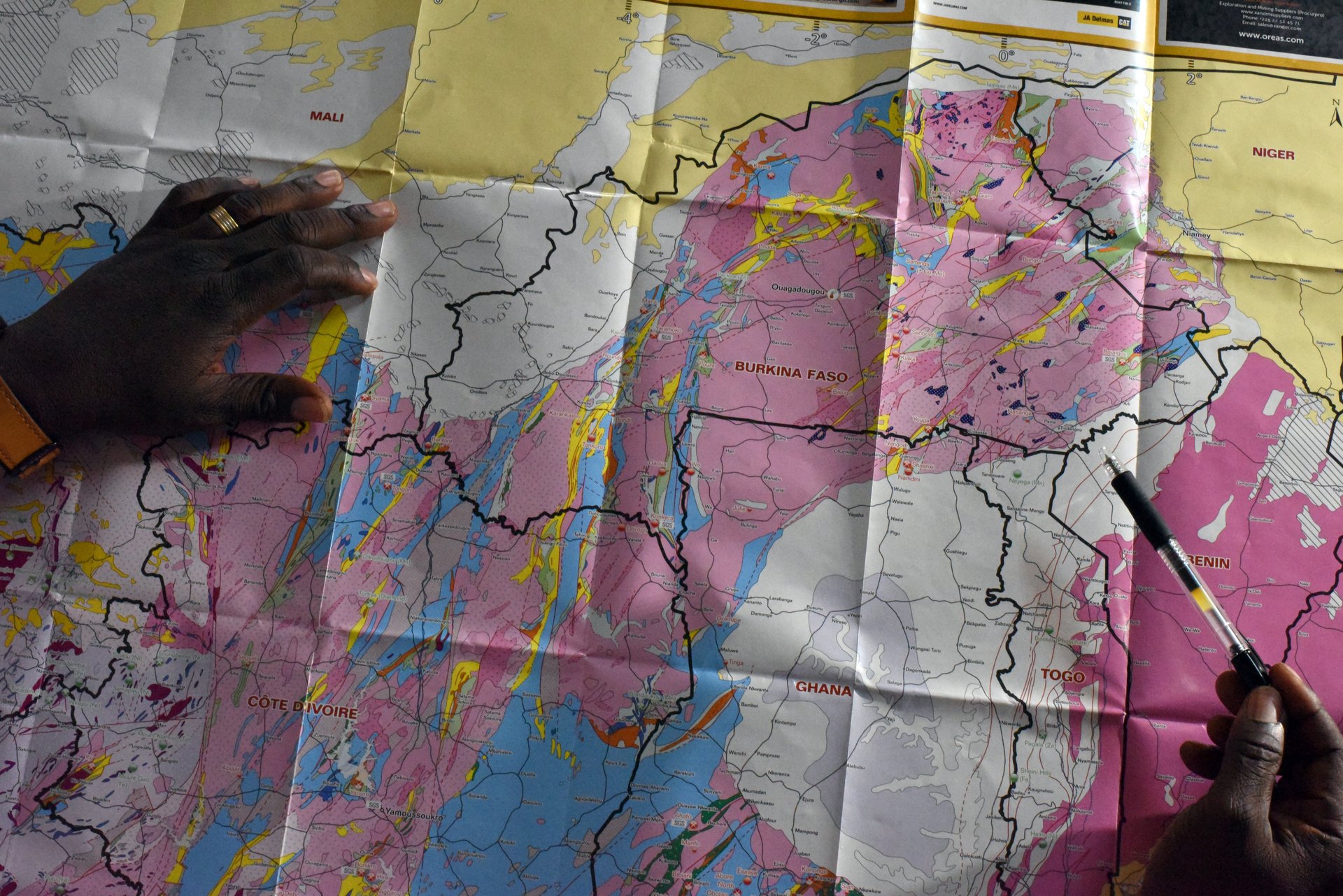Burkina Faso has replaced Mali at the epicenter of the Sahel’s security crisis
On Nov. 3, gunmen assassinated one of the last local government still active in northern Burkina Faso. A few days later, militants ambushed a convoy of Burkinabe gold mine workers, killing at least 38 people. On Monday, a helicopter accident killed 13 French soldiers in northern Mali. At least 90 Malian soldiers were killed in separate attacks in November, making it one of the deadliest months in the country’s history.


On Nov. 3, gunmen assassinated one of the last local government still active in northern Burkina Faso. A few days later, militants ambushed a convoy of Burkinabe gold mine workers, killing at least 38 people. On Monday, a helicopter accident killed 13 French soldiers in northern Mali. At least 90 Malian soldiers were killed in separate attacks in November, making it one of the deadliest months in the country’s history.
But while Mali is home to a $1.2 billion UN peacekeeping mission and at least 1,000 French troops, Burkina Faso has no such international response, and the near-daily attacks there however, have shifted the epicenter of the Sahel’s security crisis. The situation in Burkina is in many ways worse than when France first intervened to dislodge jihadists groups in northern Mali in 2012.
The Burkinabe government and the international community are struggling to respond effectively to the spreading crisis.
Since 2015, the start of the jihadist crisis in Burkina Faso, there have been “at least 1,100 fatalities” over the course of “at least 620 attacks,” while “hundreds of people have also been killed by government forces and community-based militias and local self-defense groups,” says Héni Nsaibia, a researcher at the Armed Conflict Location & Event Data Project.

The Burkinabe state is now inactive in some parts of the country and has lost significant territory to the jihadist groups, mainly composed of local militants Ansaroul Islam as well as more the more regional Al Qaeda in the Islamic Maghreb and Islamic State in the Greater Sahara. “Militant groups control northern Soum, while territory remains contested in parts of the Sahel including Oudalan Province, Yagha, and Seno; and the Centre-Nord, Nord, and Est Regions,” Nsaibia added. Some 320,000 students in the affected zones are out of school.
Jihadist groups began attacking Burkina Faso in 2015, a few months after Blaise Compaoré, who was president for 27 years, was removed from power in a popular uprising. The post-Blaise transitional government ended Compaoré’s unofficial policy of negotiating with terrorist groups and allowing northern Malian separatists with ties to terrorists free access to Burkina Faso in exchange for no attacks on Burkinabe soil.
The transitional government also dissolved the feared presidential guard, Burkina’s best-equipped and best-trained military unit whose head, Gen. Gilbert Diendéré, was also the head of intelligence and personally delivered millions of euros of ransoms to Al Qaeda and other groups in exchange for European hostages.
The presidential guard had fired on citizens protesting against Compaoré in 2014, and attempted a coup in 2015 that was snuffed out by the regular army. Guy Hervé Kam, a lawyer for the prosecution against Diendéré, asserted that the former presidential guard had at one point collaborated with terrorist groups. Diendére was convicted of murder and harming state security and sentenced to 20 years in prison in September.
With the presidential guard out of the picture, the end of the truce negotiated with the terrorist groups, and a fragile state security structure decimated by decades of corruption under Compaoré that struggled to regroup after his departure, jihadist groups based in neighboring Mali took advantage of the disorder and moved in.
The response from the Burkinabe state added fuel to the fire. Many of its offensives against the groups resulted in indiscriminate attacks against civilian populations that Human Rights Watch classified as “atrocities”. It has played a role in stoking ethnic violence and encouraged militia groups to form, who have also been accused of abuses. In November, the government jailed activist Naïm Touré for a post on Facebook that criticized “mediocrity” in the army’s upper ranks. He was charged with “demoralizing security forces” and awaits trial.
France has maintained special forces in Ouagadougou for years, but began expanding its 5,000-strong regional mission Operation Barkhane to carry out ground operations in Burkina Faso earlier this year, to mixed results. “In May-June, it conducted a vast joint operation with Burkinabe forces out of Dori. While major axes were cleared up, militant groups regained control of these transit routes within just days from when the operation ended and even launched a major assault on the town of Arbinda,” Nsaibia said.
France recently joined Burkinabe, Malian and Nigerien troops for a new mission called Bourgou IV. A video by French newspaper Le Parisien of the mission shows the difficulty it faces as Barkhane’s mission creeps across borders.
Burkinabe security minister Ousseni Compaoré agreed that the jihadist groups’ ability to adapt to the terrain gave them an advantage over Burkina’s more traditional military. “We are facing an asymmetrical war and our army was not prepared for that,” Compaoré told reporters recently in Ouagadougou.
Operation Barkhane did not give a clear logistical explanation when asked why things were getting worse. “The two key words with regards to the security situation in the Sahel are determination and patience. The fight against terrorist armed groups is a long-term process, based on security as well as socio-economic challenges. The military response is only one aspect of this crisis,” a spokesperson for Barkhane told Quartz Africa.
While there have been no reports yet of American soldiers in combat in Burkina Faso, “U.S. security cooperation efforts in Burkina Faso have increased in the last two years, totaling approximately $100 million. These efforts focus on counterterrorism, peacekeeping operations, and defense institution building,” said AFRICOM spokesperson Samantha Reho.
As security in Burkina Faso continues to deteriorate, experts are calling into question a regional military strategy that has continually led to more violence and instability. “The only bulwark [against jihadist violence in the Sahel] is the consolidation of states and the societies they are supposed to serve,” Gilles Yabi, drector of the Wathi think tank in Dakar, said recently in an interview.
Sign up to the Quartz Africa Weekly Brief here for news and analysis on African business, tech and innovation in your inbox